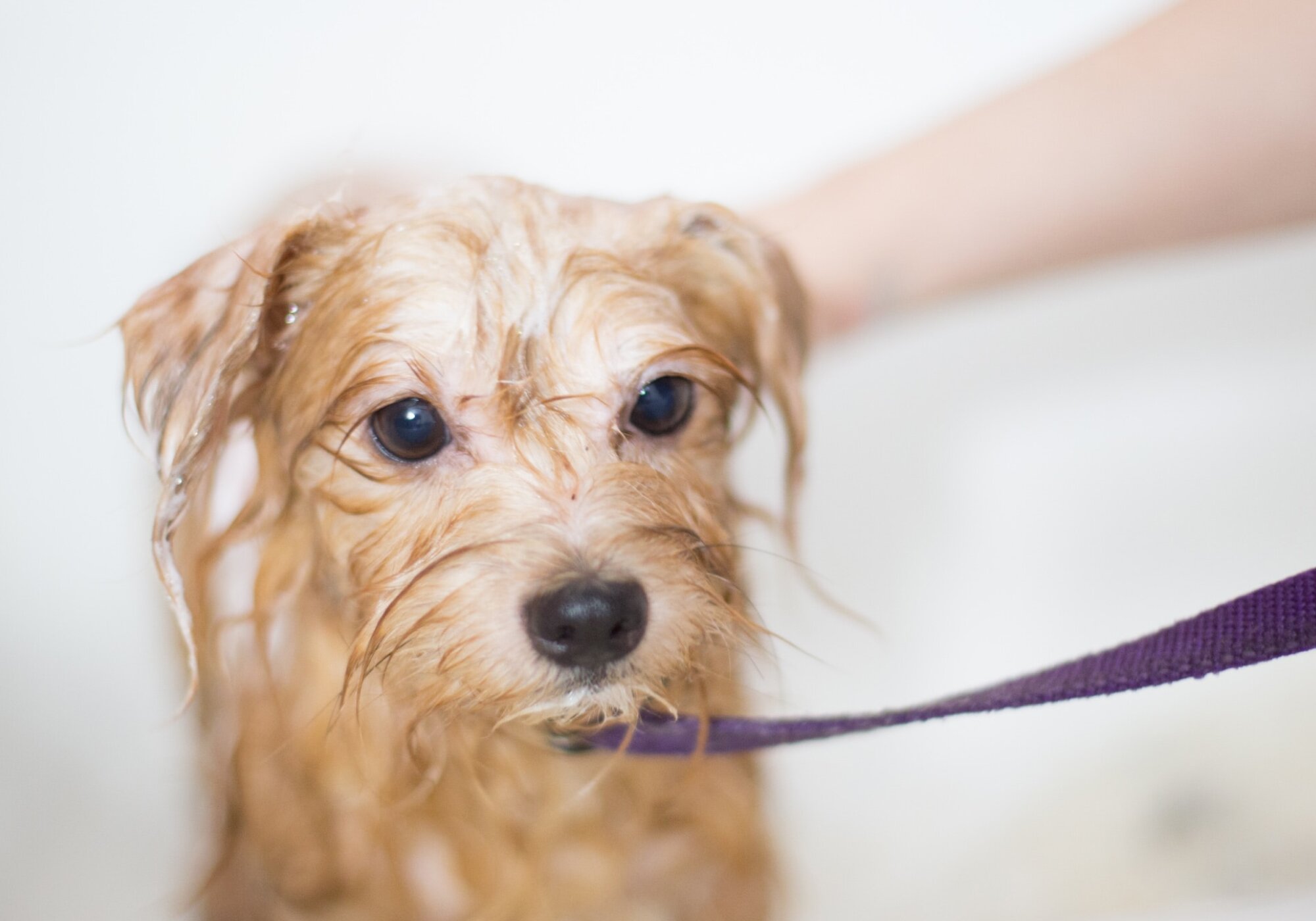If your furry friend has fleas, you may be wondering about the best way to get rid of them. One treatment that has become more popular in recent years is Dawn dish soap.
But, products you find in your kitchen cabinet aren’t always the best solution for your flea problem. And some can be harmful to your pet.
Keep reading to learn the truth about using Dawn dish soap to kill and repel fleas on dogs and cats. Plus, more effective options for your pets.
How does Dawn kill fleas on dogs
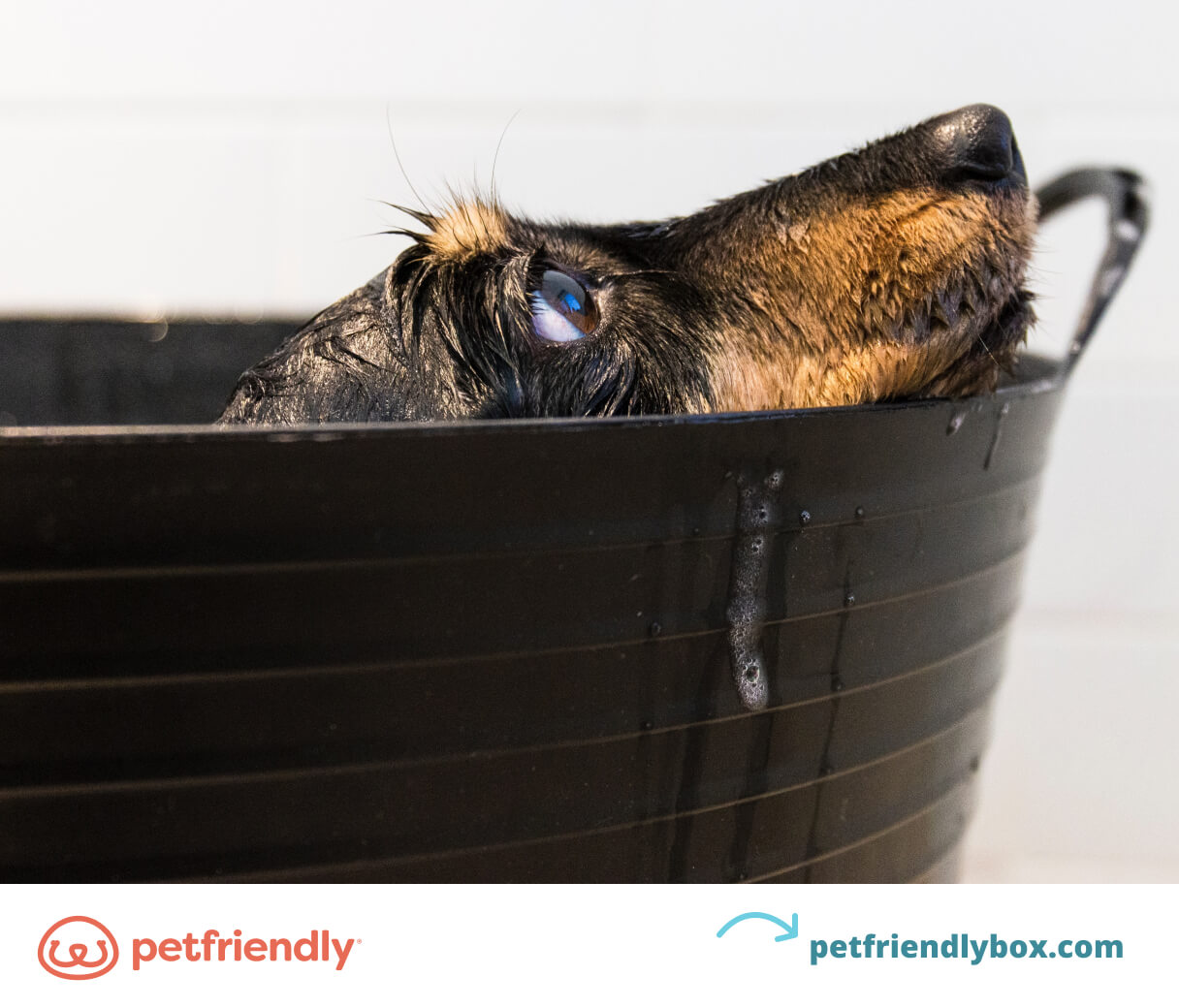
Fleas have exoskeletons that allow them to float in water. When you give your pet a bath with Dawn soap, the soap creates a surface tension in the water.
The surface tension makes the fleas sink into the water instead of floating. Water also damages the flea’s exoskeleton, allows water to enter the flea’s respiratory tract, and kills them.
In other words, Dawn works to drown fleas in soapy water. Although Dawn kills fleas, it does not keep them from coming back. Here’s why:
- Dawn soap is effective at getting rid of adult fleas. However, flea eggs and flea larvae are not affected by Dawn. When you use dish soap to kill fleas in your pet’s coat, you are only getting rid of adult fleas.
- Dawn does not repel fleas. Fleas populate quickly and can lay up to 50 eggs per day. Dish soap does not get rid of all life cycle stages of fleas. So, they will continue to populate in your pet’s coat and environment.
- Dawn does not protect your pet from future infestations. Using dish soap to cleanse your pet’s fur may get rid of any adult fleas on their skin, but it will not protect them from becoming re-infected by flea populations in their environment.
Using dish soap to treat an infestation is not a long-term solution for pet owners. To keep your pet flea-free, you'll need to use an effective flea and tick preventative.
Benefits of Dawn dish soap
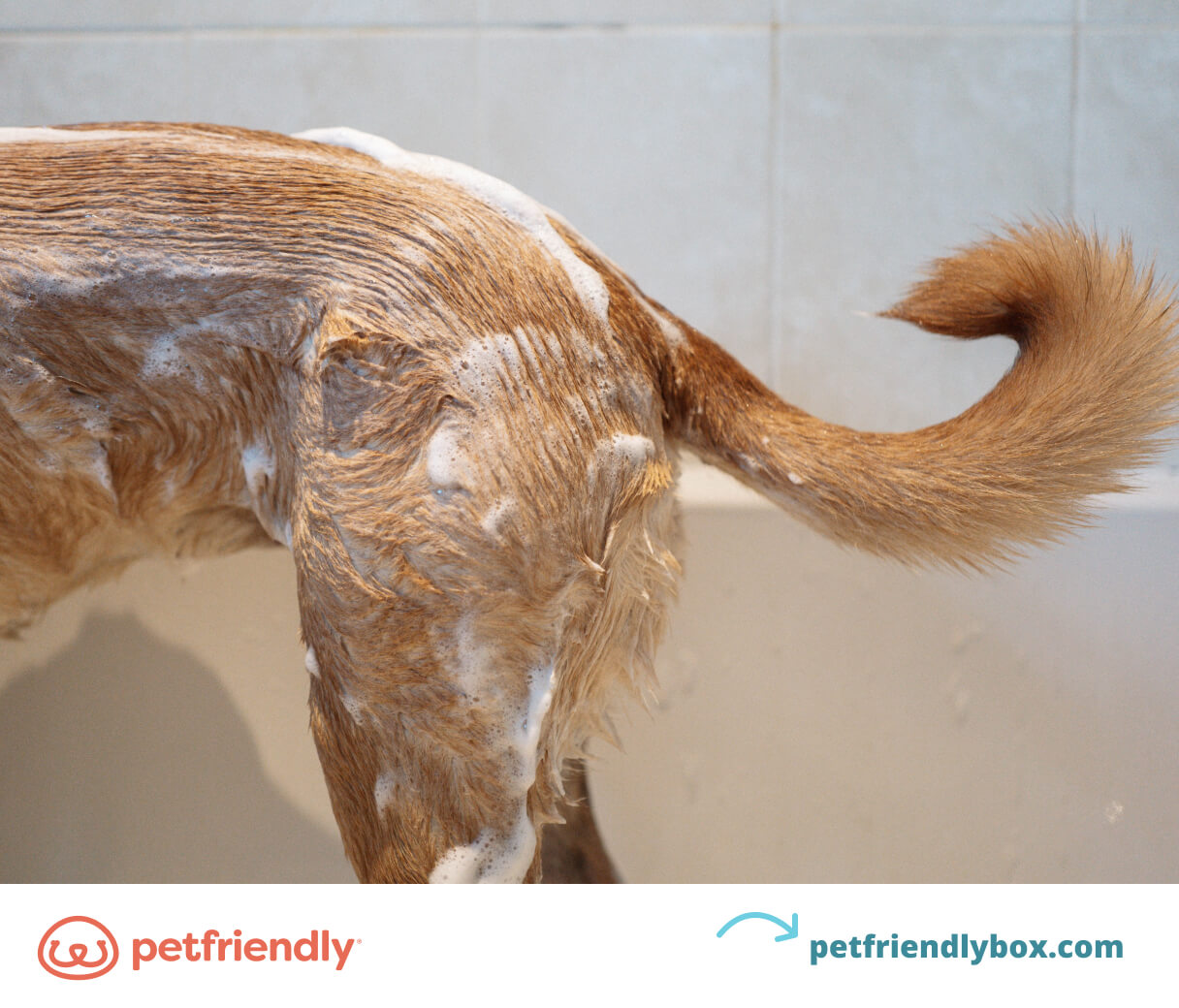
Dawn dish soap may not be the most effective or efficient method for flea repellent or treatment. But it can be beneficial for your pet in other ways.
It’s safe for pets that are too young for flea treatment.
Most flea and tick preventatives are not safe to use on puppies and kittens under 8 weeks of age. For these young animals, Dawn can be a safe option to kill fleas in their fur.
It can help with serious flea infestations.
If your pet is suffering from a serious flea infestation, a dish soap bath can rid your pet’s fur of any active fleas. After cleaning your pet with Dawn, wait at least 48 hours before applying any topical flea treatment to your pet.
It quickly cleans your pet's coat.
Dawn dish soap can be helpful if your pet has oil or skunk spray on their coat. Dawn helps to break down the oil and eliminate foul smells stuck to your pet's skin and fur.
Be sure to wash all the soap out of your pet's fur with warm water if you give them a Dawn bath. Liquid soap residue can cause skin irritation.
Risks of using Dawn dish soap

No matter the reason, using Dawn soap on your pet can pose some risks. Here are some common risks of using Dawn dish soap to kill fleas on cats or dogs.
It strips natural oils from your pet’s skin.
Dawn, like most dish soaps, works to strip oils from surfaces. Using Dawn dish soap can strip your dog's skin of its natural oils.
Pets need the oils on their skin to keep them comfortable, protect them from infection, and spread topical treatments. Using Dawn regularly on an animal's skin can strip these oils and lead to discomfort, skin infections, and make topical treatments ineffective.
It can cause skin irritation and infection.
If your pet has a flea problem, their skin is probably already irritated from flea bites and itching. Adding Dawn dish soap into the mix may worsen their skin condition.
Dawn dish soap is not labeled for feline or canine use. If you want to use a product to wash your pet's fur and skin, use a flea shampoo designed for pets.
It’s toxic to pets if ingested.
Dawn works as both a dish detergent and a soap. The ingredients of both can be toxic to pets. Dawn’s detergent, specifically, could poison your pet if they lick it off their coat.
Symptoms of dish detergent poisoning include:
- Vomiting
- Diarrhea
- Excessive drooling
4 better options for flea treatments

To eliminate a flea infestation in your home or on your pet, you may want to find a long-lasting solution for flea control. Check out these effective treatment options for killing and preventing fleas.
1. Use a flea and tick preventative.

An effective flea treatment or flea collar is the best way to protect your pet from flea infestations. Not only do flea preventatives work by killing fleas at all life cycle stages, but they also repel fleas from coming back.
To best protect your pet from fleas and end the flea life cycle, apply flea and tick preventative every month. Talk to your vet about which flea preventative is right for your pet.
If you already have flea and tick protection and still are fighting fleas in your home, PetFriendly's Rapid Flea Removal Kit is an all-in-one flea control solution for pets.

2. Try a flea comb to remove fleas from your pet’s fur.

Flea combs are easy to use and effective in removing fleas from your pet’s coat. Begin at your pet’s face, head, neck, and shoulders. Then, work towards their back and tail.
For best results, pull the comb in the same direction as the fur growth. This will help to remove fleas, flea eggs, flea dirt, and dead skin.
3. Find flea shampoos made for pets.
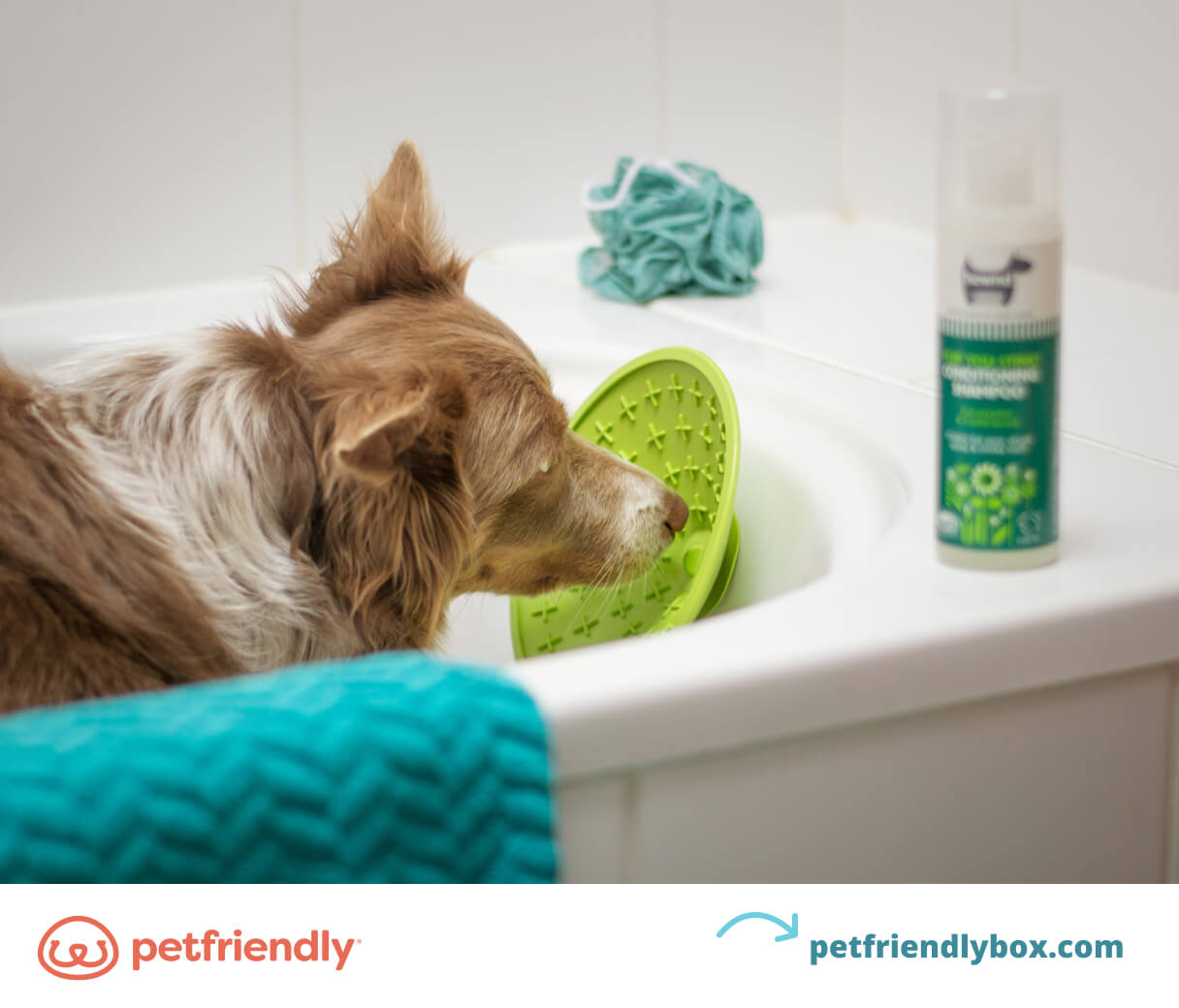
Rather than giving your pet a flea bath with Dawn, try using a shampoo that is safe for pets. The safest shampoos for your pet are free of things like dyes, sulfates, phthalates, and additional chemicals.
Flea shampoos typically do not kill flea eggs or larvae. But, they may kill adult flea populations living in your pet’s fur. To get rid of flea eggs and larvae and end the flea life cycle, use a topical flea and tick treatment.
4. Treat your environment.
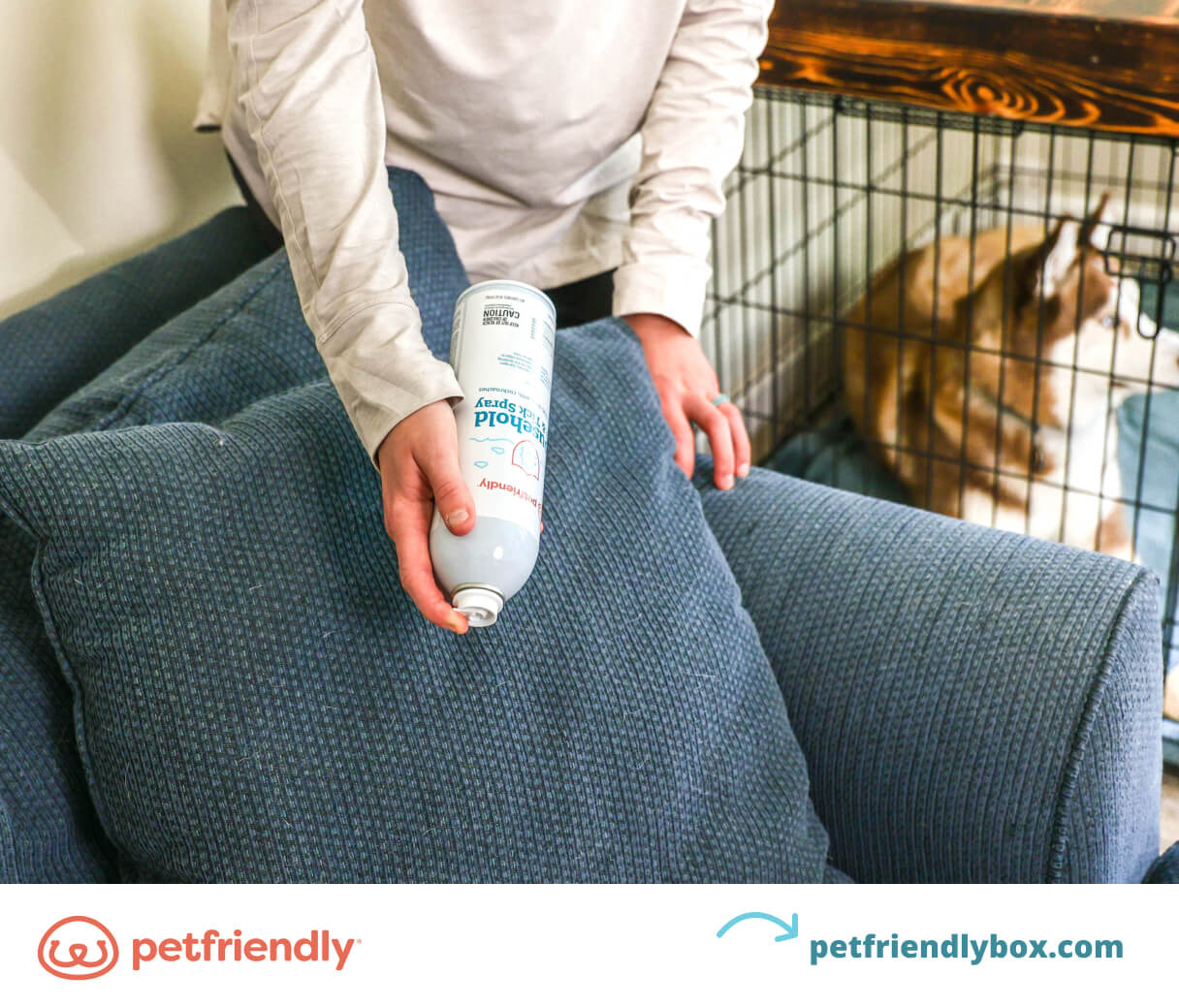
Ridding your dog or cat’s fur and skin of fleas is important. But, more fleas can re-infest your pet if they exist in their environment.
Here are two remedies to treat your environment for fleas.
Apple cider vinegar
While apple cider or white vinegar don’t kill active fleas, they may repel them. The smell and taste of vinegar repels fleas.
To use vinegar effectively for flea prevention, mix a solution with equal parts water and vinegar in a spray bottle. Spray any soft surfaces in your home with a light mist. Do not spray your pet directly with the vinegar mixture.
Pet-friendly household spray
Flea spray for your house is an effective method to get rid of in-home infestations. But, be sure the spray contains an Insect Growth Regulator (IGR) to keep fleas away for good. If your flea spray does not contain any IGRs, only the adult flea population will die.
Before applying household spray, vacuum all surfaces where fleas can nest, like carpets, furniture, and floors. Dispose of all vacuum bags in an outdoor trash can to prevent infestations.
For best results, apply an even layer of fine mist over multiple home surfaces including carpets, furniture, and mattresses. Do not spray your pet directly with a household spray.
While your carpets and furniture dry, wash your pet’s bedding and blankets in soapy, clean water to kill any fleas. Make sure the treated surfaces are completely dry before allowing your pets or other animals back into the environment.
VET TIP
A female flea can lay up to 50 eggs per day. So, it’s important to address flea problems quickly and find a permanent solution to prevent infestations.
Frequently asked questions
When it comes to killing fleas and preventing flea infestations, it's important to do your research. Before tackling your flea problem, check out these frequently asked questions from pet parents about using Dawn dish soap to get rid of fleas.
Is Dawn dish soap safe for pets?
If used in small amounts, Dawn dish soap is safe to use on your pet’s skin and fur. But, regular use of Dawn or other soaps for cleaning can be harmful to your pet.
Dawn is not safe for pets to ingest. If your pet ingests dish soap, watch for symptoms of detergent poisoning and talk to your vet immediately.
Why are fleas attracted to Dawn?
Fleas are not strictly attracted to Dawn. However, some pet parents create flea traps with Dawn that are effective.
You can create a flea trap by placing equal parts water and Dawn in a cup. Place the flea trap near a bright light — this will attract fleas to jump toward it and fall in.
How long does it take for Dawn to kill fleas?
If you give your dog a bath with Dawn dish soap to kill fleas, you may notice dead fleas in the soapy water in just a few minutes. Dying fleas will fall off of your pet's body and sink underwater.
Will Dawn dish soap kill flea eggs?
Dawn dish soap and other soaps do not kill eggs or flea larvae. But, Dawn dish soap does kill adult fleas and removes flea dirt (feces) from your pet’s fur and skin.
What kills fleas instantly in the house?
Dawn dish soap may be effective at killing adult fleas on your pet, but Dawn won’t cover any fleas in your house. For home infestations, we recommend using a household spray with an IGR.
Household sprays with IGRs work to kill fleas at all life cycle stages and prevent fleas from coming back. To get rid of a severe flea infestation, spray all of the surfaces in your pet's environment with a light mist.
Does diatomaceous earth kill fleas on pets?
Diatomaceous earth can kill flea larvae and adult insects. But, flea eggs are not affected by it. So, it’s not a permanent solution for flea infestations or preventing fleas.
Can fleas live in human hair?
Fleas typically do not live in human hair. Human hair is not as thick or dense as animal fur. Even long human hair is not a place where fleas would want to nest.
Fleas prefer thick and moist environments, which makes animal fur an ideal breeding ground. So, fleas aren’t attracted to breeding or nesting in human hair.
Although it may seem like a simple solution, Dawn dish soap is not an effective means for flea control. Always keep your pet's health in mind when treating fleas on your pet. And, remember to protect your pets with effective flea preventatives to keep fleas away in the first place.

